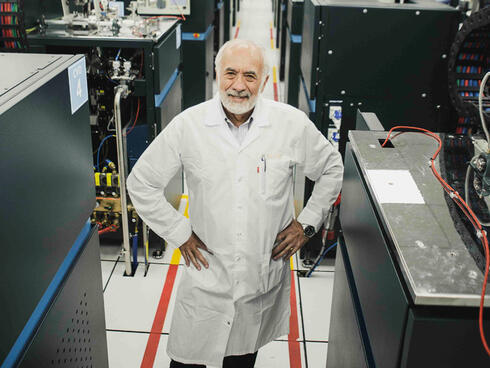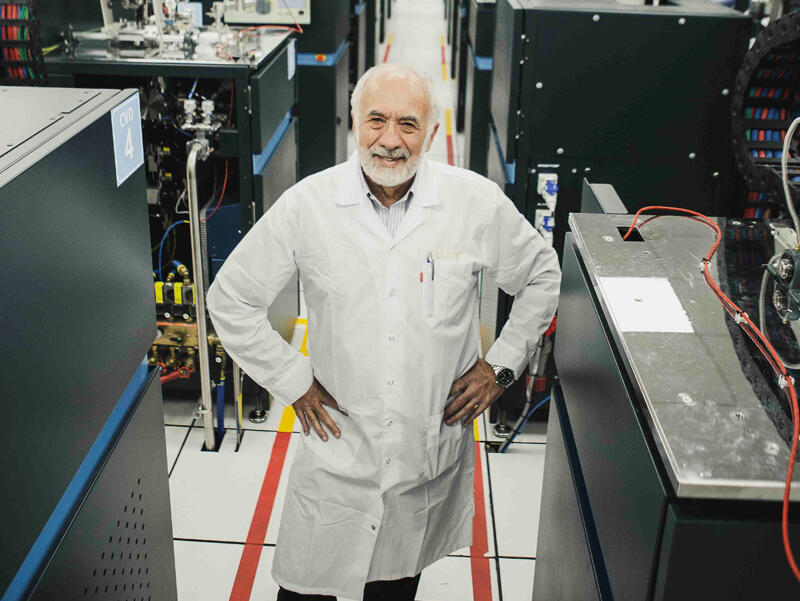
Lusix lost $65 million as lab-grown diamond prices plummeted
Court-appointed trustee considers selling assets or merging to rescue the struggling company. Lusix registered a $551,000 profit in 2021, but has lost $65 million since the beginning of 2022. These losses are primarily due to the aggressive entry of Indian competitors into the laboratory diamond market, which has driven down the price of lab-grown rough diamonds by 90%.
Attorney Shay Bar Nir, appointed by the court as a trustee for Benny Landa's Lusix laboratory diamond company, has requested the court's mandate to sell the company or its assets to the highest bidder. In his first report since his appointment ten days ago, Bar Nir also requests to be appointed as the manager of the settlement. Bar Nir, from the Firon law firm, is asking the court to extend the stay of proceedings order, which expired on Sunday, until the end of September. The banks have agreed to this extension.
The report reveals, for the first time, the significant financial losses faced by Lusix. While the company registered a $551,000 profit in 2021, it reported a loss of $22.8 million in 2022, $30.7 million in 2023, and $11.5 million in the first half of 2024. In total, Lusix has lost a staggering $65 million since the beginning of 2022. These losses are primarily due to the aggressive entry of Indian competitors into the laboratory diamond market, which has driven down the price of lab-grown rough diamonds by 90%.
The company currently operates 76 machines at its factory in Rehovot and has placed two-thirds of its 90 employees on unpaid leave. Lusix submitted its request for a stay of proceedings due to debts amounting to NIS 103 million.
The company’s revenue has steadily declined: from $22.8 million in 2021, to $17 million in 2022, to $14 million in 2023, and to just $6 million in the first half of 2024. In the ten days since the stay of proceedings request was filed, the company generated $477,000 in revenue.
Bar Nir emphasized that Lusix’s strength lies in its expertise, employee knowledge, and cutting-edge technologies in the field of laboratory diamonds. "There is significant value in continuing the company's operations and reaching an agreed-upon debt settlement to repay its obligations within a few weeks, preferably before the new Jewish year (end of September)," Bar Nir noted. He warned that selling the company in parts could harm the value of its intellectual property and technologies.
Regarding Lusix’s request for time to merge with another Israeli company, Bar Nir argues that, based on his assessment, the merger is not yet viable, and it would be challenging to implement given the company’s current situation. "There are parties interested in investing in the company, and discussions have been held with a well-known international company that is willing to invest in Lusix after conducting proper due diligence, which would only take a few days," he wrote.
Lusix, which produces rough laboratory diamonds, filed a request two weeks ago for a stay of proceedings order under Section 4 of the new Insolvency Law—a move designed to provide temporary protection from creditors while the company attempts to consolidate a debt settlement and explore a potential merger with another Israeli company. Lusix is represented in these proceedings by attorney David Hahn, the former Guardian General and the Official Receiver of Israel.
Lusix submitted the request to the court after urgently appealing to its shareholders for a $22 million infusion to continue operations. The company clarified that without this capital, it would become insolvent. The shareholders of Lusix are generally willing to provide the funds but have made it conditional on the successful negotiation of Lusix’s merger with another Israeli company operating in the same field, which also has a marketing arm in the USA.














